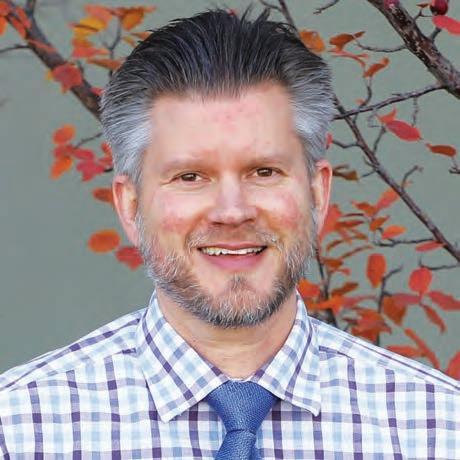
6 minute read
Tenure time
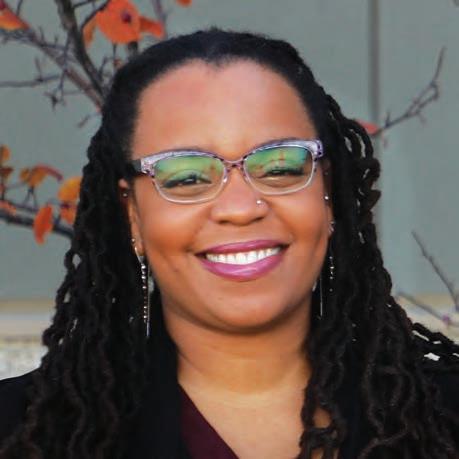





tenure time To be awarded tenure is to reach a major milestone on an academic career journey.
Ambrose University has a strong group of tenured faculty across all disciplines — and those ranks recently grew by three.
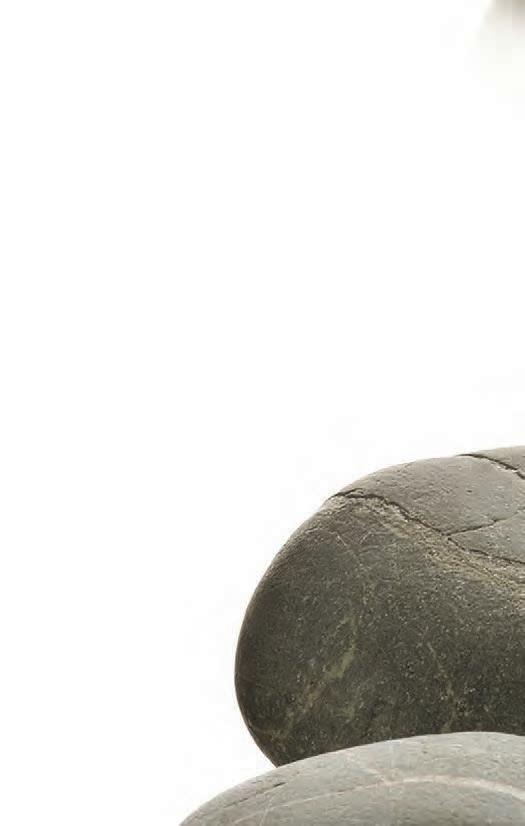



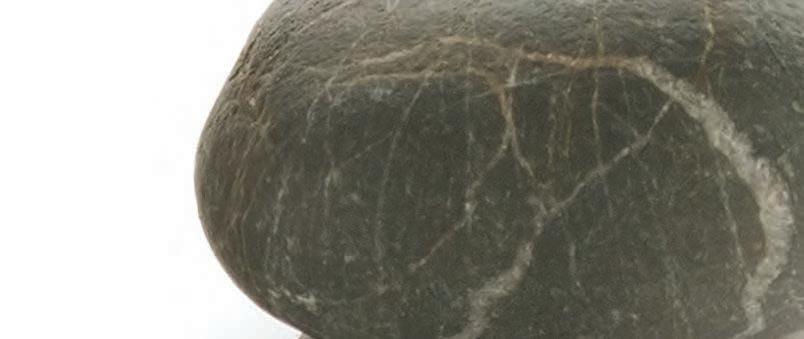
Pictured left to right: Barrett Hileman, Associate Professor, Theatre; Dr. Monetta Bailey, Assistant Professor, Sociology and Dr. Jim Cresswell, Professor, Psychology.
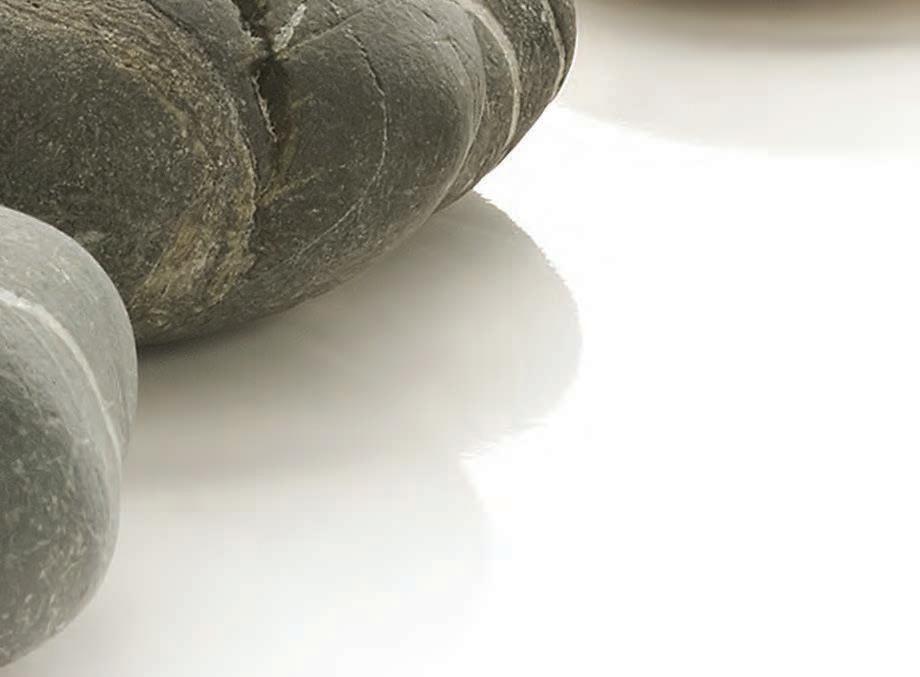
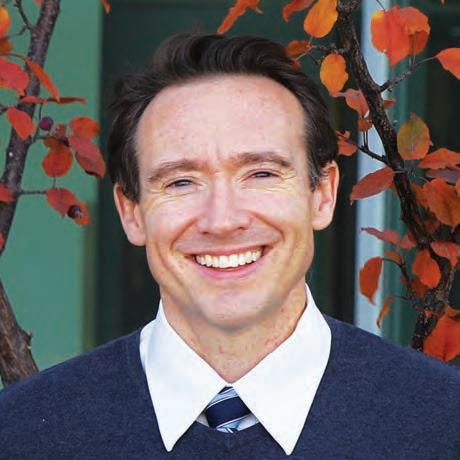



Tenure gives me the security to think bigger and more long term.



Tenure is not a gift. It is earned.
It recognizes faculty who have noteworthy scholarly achievements, are excellent teachers and make significant contributions to their institution and its students, their field of study and the wider community. Tenure is intrinsic to high quality post-secondary education, a commitment to mutual betterment of value to faculty, students and society alike. It affirms faculty members’ freedom to speak about and explore difficult, even potentially controversial topics and to consider diverse perspectives. Doing so enables faculty to open the doors to knowledge and understanding more widely — on campus, across communities and beyond.
Researching what’s right for our time
Dr. Monetta Bailey Assistant Professor, Sociology
Dr. Monetta Bailey has a keen interest in the intersection of race, ethnicity, immigration and the justice system, and her research is proving particularly relevant at this time in history. She shares her insights and perspectives with students and colleagues, also with the broader community as part of a local television panel focused on criminal justice issues.
Bailey’s career at Ambrose University began in 2012 — and could well be described as an academic journey of faith. “I was initially intrigued that Ambrose was faith-based,” she says. “I wondered what it would look like to blend academics and faith, which I saw as two very separate parts of my identity. Since faith isn’t usually part of academia, being able to integrate the two was quite freeing.”
So, too, was the opportunity to blend teaching and research. “I’ve come to enjoy teaching more and more,” she says. “I don’t see my options as teaching or research, but teaching and research.” Tenure, she believes, will enable her to move forward even more confidently with research into race and ethnicity that doesn’t necessarily fit into the “traditional research” box. As importantly, she says she’ll feel more at ease about being outspoken and “saying what I need to say” about issues such as Black Lives Matter.
It will also make it possible to follow research avenues she’s had in mind for some time, notably looking at radicalization as a concept in Alberta. “I’d like to look at how different groups become radicalized, how they fit in with society, what discourses they’re feeding on, what experiences individuals have,” she says.
“I hope to look broadly at how people become radicalized, and what that looks like.” She plans to turn her findings into a book — sharing knowledge with students, colleagues and the community at large. >>>
tenure time
Forging connections that matter
Dr. Jim Cresswell Professor, Psychology
Ambrose University Bachelor of Arts – Psychology students know firsthand the impact Dr. Jim Cresswell has on their lives — he was the architect of the popular program that gives them the knowledge and space to realize their potential.
Cresswell is an international scholar with numerous books, publications and presentations to his credit, and no end in sight for a busy research agenda. He came to Ambrose in 2017, having previously developed a university Psychology program, and built on that experience to lead colleagues to create a distinctive offering for Ambrose.
Tenure, he believes, means trust and validation as a scholar and teacher, and affirms that what he stands for resonates with what Ambrose stands for.
“Teaching really matters,” Cresswell says. “For me, it is a spiritual act. It’s very personal and one of those jobs where you can’t pull the personal and the professional apart. It is about sharing the experience of learning with my colleagues and students. It is forging connections and building community — engaging in deeply relational connections.
“Tenure isn’t important, per se. Rather, what it stands for is what matters. It signals that the University trusts my ability, that it wants to make the long-term investment in me. It gives me the freedom to make holistic decisions; decisions that matter, that are economic, pragmatic, ethical — and respected.”
While Cresswell always envisioned a future rich with scholarly activity, and serving the community through his investigations, tenure will help broaden his view of potential research avenues.
“The role of academics is to live in the unknown. We are always asking what the world is like, and whether we’d see it differently if we thought about it differently, and what we’d do about it. It can be a bit tricky sometimes.”
Acting to realize potential
Barrett Hileman Associate Professor, Theatre
Barrett Hileman came to Calgary from New York in 2014 to take on an exciting role: creating a new Diploma in Acting program for Ambrose University. He literally wrote his own part, becoming the very first instructor in the new program.
“I had never sought teaching positions,” Hileman says of his career to that point. “But this was a missional fit for me. Ambrose, my personal life, directing, teaching … it all aligns.
“I’m always looking at what is possible, what is new, what kind of society we want to live in, and how we can experience growth personally, artistically and professionally,” he explains. “Teaching at Ambrose allows me to live out the belief I have in people’s potential, in guiding students who might not even see it in themselves.”
Sometimes change comes Tenure embeds in spurts, and sometimes the arts into it is of the gradual day-today variety, but “doing the work will always the fabric of the University. It change you.” solidifies that the In addition to Hileman’s teaching and scholarly arts are part of the Ambrose activity, he also writes and identity. has a professional practice in theatre directing and dramaturgy, including recently directing a play for Fire Exit Theatre. Hileman is also completing audio drama scripting and directing for Good Seed International — it does “formalize a partnership” and add a degree of security that is seldom present in his field.
“Jobs in the arts are always tenuous,” he says. “I don’t live with the illusion of security, even with tenure — but I am certainly grateful for the recognition.”
Most importantly, however, is what tenure does for the arts at Ambrose. “It embeds the arts into the fabric of the University,” Hileman says. “It solidifies that the arts are part of the Ambrose identity.” p








